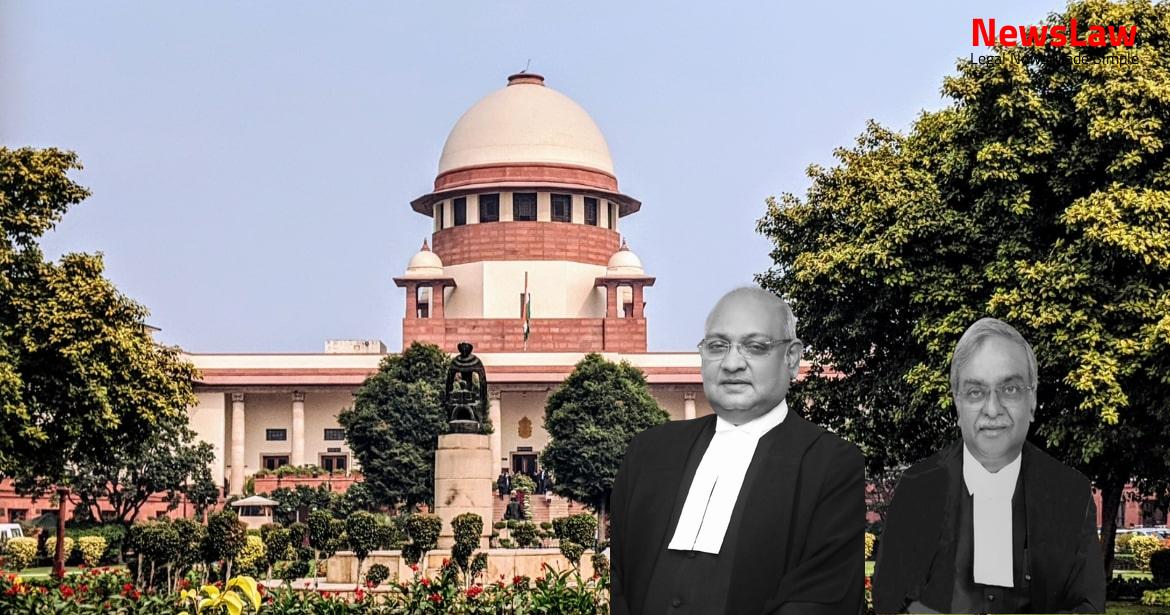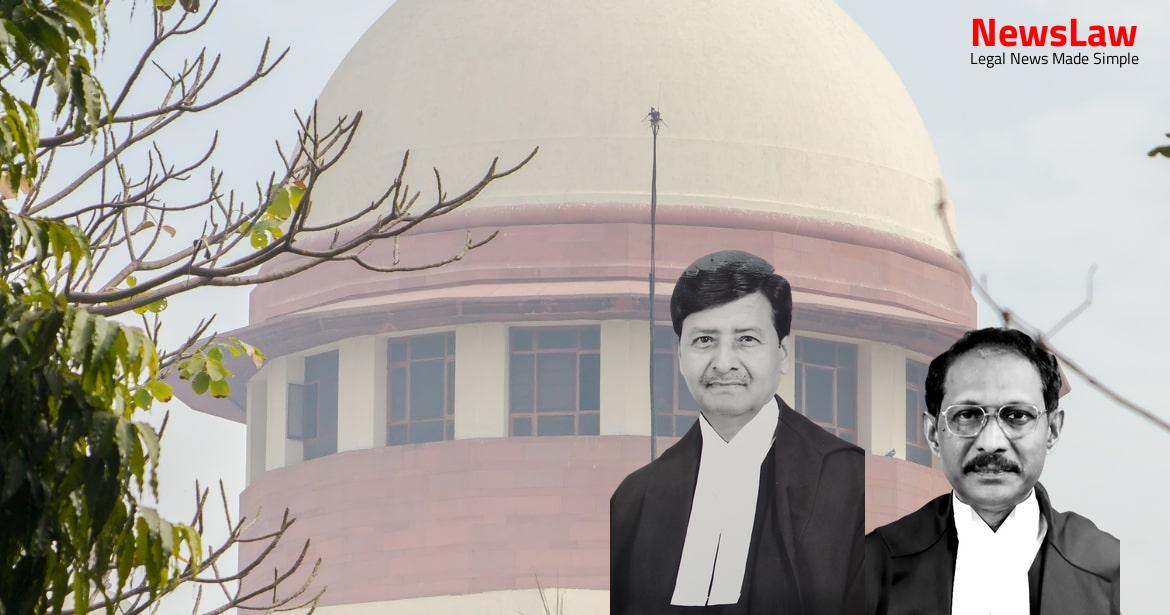In a recent legal case, the court delved into the complexities of maintaining a level playing field in the context of resolution plan modifications. The court’s analysis focused on upholding fairness and balance between parties, particularly when it comes to allowing modifications to resolution plans. This blog post delves deeper into the legal intricacies of the case and how the court’s decision reflects key principles in insolvency law.
Facts
- The CoC deliberated on the resolution plans submitted by the appellant and the other resolution applicant.
- The CoC’s observations on the two resolution plans were recorded in the minutes of the eighth meeting dated 02.11.2021.
- Appellant sent a communication on 18.11.2021 with an affidavit dated 17.11.2021 seeking modification of the resolution plan, which was declined by the resolution professional.
- Appellant approached the Adjudicating Authority by filing I.A. No 367 of 21 in C.P. No (IB) 349/ALD/2018.
- The Adjudicating Authority granted the appellant’s prayer on 13.12.2021 but also allowed the other resolution applicant to place modifications before the CoC for a level playing field.
- Resolution plans were considered by the CoC on 21/22.12.2021, and the plan of the other resolution applicant was approved.
- The Appellate Tribunal dismissed the submissions made by the appellant regarding the Adjudicating Authority’s order.
- It was noted that the Adjudicating Authority had passed the order to maintain a level playing field.
- The Appellate Tribunal observed that the resolution plans had already been considered by the Committee of Creditors on 21.12.2021.
- The grievance of the appellant regarding the disclosure of their resolution plan and the subsequent modifications by others was acknowledged.
Also Read: Legal Analysis on Alleged Multiple Agreements in Property Sale Case
Arguments
- The appellant contends that it did not modify the resolution plan but met the COC requirements through an affidavit.
- The appellant argues that allowing the other resolution applicant to modify its plan is unjustified.
- The terms of the appellant’s resolution plan became known to the other applicant during the examination by the Adjudicating Authority.
- Certain key features/stipulations of the resolution plan were sought to be amended by the appellant.
- The Court declines to entertain the appeal under Section 62 of the Insolvency and Bankruptcy Code.
- The appellant questions the NCLAT order declining to interfere in the amendment of the resolution plan.
- The NCLT allowed the appellant to amend its plan but also permitted the other applicant to modify their plan.
Also Read: Ensuring Maintenance Rights: Court’s Legal Analysis
Analysis
- The Adjudicating Authority passed an order to balance the positions of the parties and provide a level playing field by granting corresponding permission to the other resolution applicant to place its modification for consideration of CoC.
- The appellant’s affidavit dated 17.11.2021 stated that the payment of upfront amount under the resolution plan would not modify the plan but was an expression of understanding about modifying the term of the plan from 180 days to 90 days.
- The Adjudicating Authority’s view on the matter was reasonable and sound, supported by the Appellate Tribunal.
- The fact remains that there was going to be a modification of the relevant terms of the resolution plan of the appellant.
- The appeal challenging the Appellate Tribunal’s order dated 13.01.2022 was dismissed previously.
- The unsuccessful resolution applicant is now questioning the same order and presenting relevant documents for consideration.
- No order prejudicial to the interest of the successful resolution applicant can be passed in this appeal due to the absence of the other resolution applicant whose plan has been accepted by the Committee of Creditors.
- The other resolution applicant has not been impleaded as a party respondent in this appeal.
- The absence of the other resolution applicant impacts the decision-making process in this appeal.
- The interests of the successful resolution applicant must be protected in the absence of the other applicant.
Also Read: Legal Analysis: High Court’s Critique of Authority Actions
Decision
- The appeal is dismissed based on the observations made previously.
- All facts and circumstances of the case have been considered.
- The Adjudicating Authority is left to examine the relevant aspects of the matter in accordance with the law.
- Further processing before the Adjudicating Authority is required.
- The approval of the Committee of Creditors has been presented to the Adjudicating Authority.
Case Title: AJAY GUPTA Vs. PRAMOD KUMAR SHARMA (2022 INSC 236)
Case Number: C.A. No.-001385 / 2022



